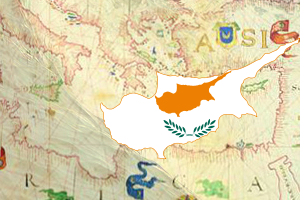The Gaza-Ankara-Jerusalem Triangle: How Israel and Turkey Made Up on Gaza Above the Heads of Palestinians and Egyptians
By Nathan Shachar
July 8, 2016
Whatever dividends the fresh Turkish-Israeli rapprochement will bring, it reveals something fundamental about the new Middle East: the number of unknown variables in this ever less predictable environment is steadily growing, and even the most arrogant and unrepentant leaders will have to eat crow from time to time in order to salvage their national interests. Leaders who stand by their words and their principles will be severely handicapped.
Turkey Loses Ground in Cyprus
By Ozan Serdaroğlu (vol. 8, no. 13 of the Turkey Analyst)
Seven months after Cypriot president Nicos Anastasiades withdrew from the peace talks, attempts to reunify Cyprus are again underway with greater optimism following the election of Mustafa Akıncı as the new leader of Turkish Cypriots. The Greek Cypriot side continues to enlarge its diplomatic capacities and develops a new regional context where Turkey is left with fewer options. Eastern Mediterranean geopolitics together with the more assertive, independent-minded stance of Turkish Cypriots in favor of “reunification” mean that Turkey faces the most delicate stage of its engagement in Cyprus since 1974.

Turkey and Cyprus' Gas: More Troubles Ahead in 2012
By Stephen Blank (vol. 5, no. 1 of the Turkey Analyst)
New tension is brewing between Turkey and Cyprus after Cyprus’ and Israel’s enormous gas finds in the Eastern Mediterranean in 2010-11 and Turkey’s extremely negative reaction to those finds. Turkey can be embroiled with a conflict, not only with Cyprus, its European backers and Israel, but with Russia as well. The Cyprus energy conflict demonstrates the urgency of making progress on the tangled issue of Cyprus’ future and the relationships among its two ethnoreligous groups and of fully integrating Turkey into Europe.
Turkish-Israeli Relations: Empty Threats or a Looming Crisis?
By Gareth H. Jenkins (vol. 4, no. 17 of the Turkey Analyst)
On September 2, 2011, Turkey downgraded its diplomatic ties with Israel from ambassadorial to second secretary level and suspended all bilateral military agreements between the two countries. On September 8, 2011, in an interview on Al Jazeera, Prime Minister Tayyip Erdoğan vowed that Turkey would provide naval escorts for any future attempts by Turkish aid vessels to breach the Israeli naval blockade of Gaza. He also warned that Turkey would “prevent Israel from unilaterally exploiting the natural resources of the eastern Mediterranean.”
Is the Turkish-Israeli Alliance Over?
By Barry Rubin (vol. 2, no. 19 of the Turkey Analyst)
The Turkey-Israel alliance is over. After more than two decades of close cooperation, the Turkish government is no longer interested in maintaining close cooperation with Israel. Nor is it—for all practical purposes—willing to do anything much to maintain its good relations with Israel. The absence of any substantial, public criticism in Turkey of the Turkish government’s break with Israel does suggest the Turkish-Israeli relationship lacked deeper roots in Turkish society, and hence the potential to become a permanent one.



